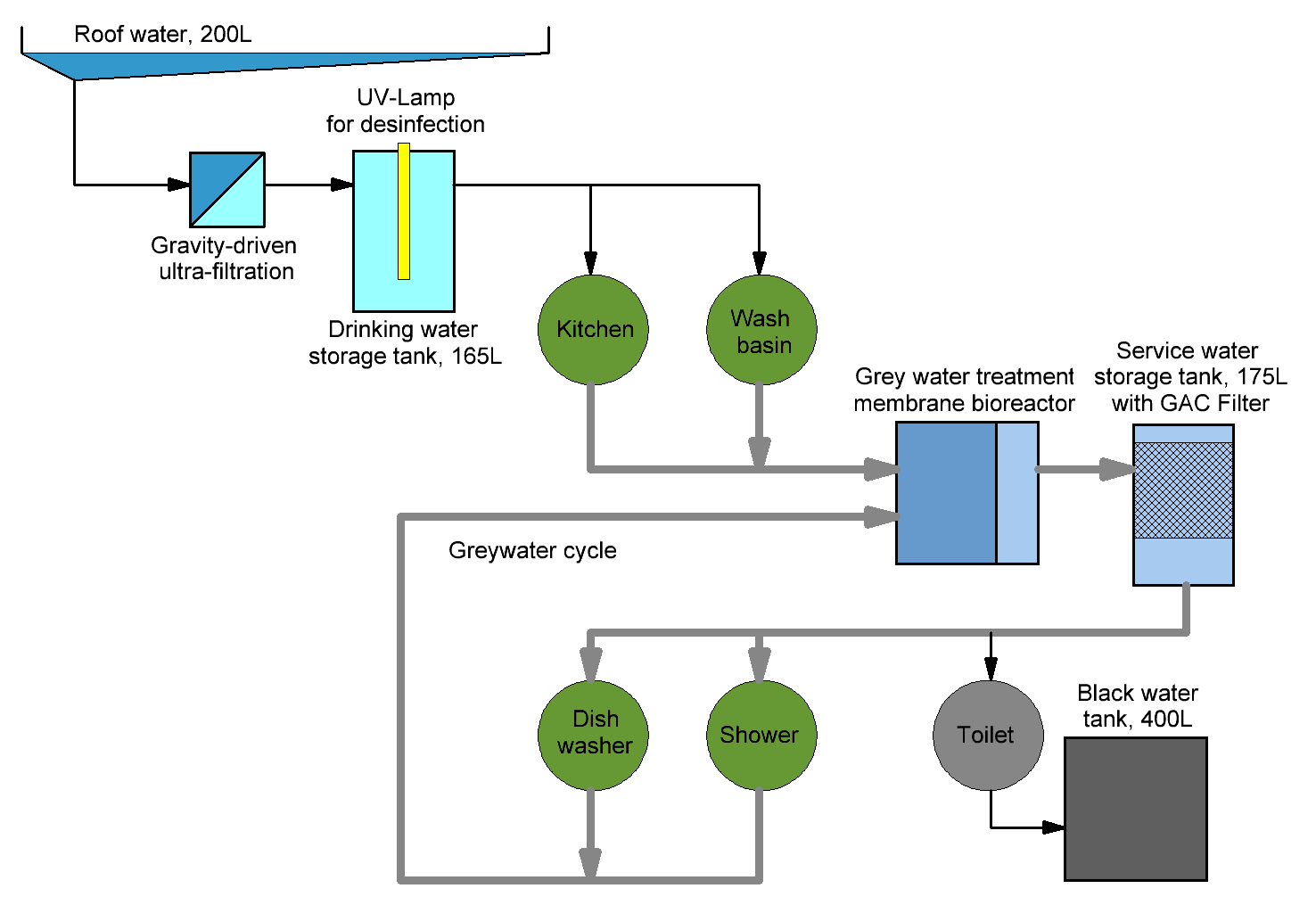
WATER

DRINKING W.

RECYCLING

BLACK WATER

FILTRATION
Rain water treatment and in-house reuse of greywater
Decentralized systems for drinking water processing could make a big contribution to comply with the millennium development goals. With the water concept in "SELF", Eawag demonstrates that membrane technology offers the chance to do just that.
Lack of safe drinking water is one of the main sources of the transmission of diseases worldwide and centralised plants cannot be used in many situations because of the required infrastructure. To test the feasibility of decentralized water supply and sanitation, Eawag has joined forces with Empa, the University of Applied Sciences Nordwestschweiz and the Zurich University of the Arts to develop and test an autonomous housing unit: a container-sized living unit powered by solar energy and supplied with rain water to demonstrate that living comfort at a usual standard for two persons is feasible completely independent from centralized supply of water or energy. Within the unit several innovative technologies are being tested, ranging from power management and isolation materials to modern design and water technologies.

The water concept in this housing unit ("SELF") treats rainwater from the roof to drinking water with the help of a gravity-driven dead-end ultrafiltration membrane and treats the grey water with a membrane bioreactor to be used again for showering, dish washing and to flush the toilet (See Fig.1). Only heavily loaded waste water from the water-saving toilet (black water) is removed from the cycle. The average rainfall in mid-Europe collected on the roof is more than enough to supply sufficient fresh water, but even in periods of drought two persons can live in "SELF" without compromising convenience for about two weeks before running out of fresh water. The concept is based on average consumption for two persons of 15 L per day fresh water and 90 L per day recycled water (service water).
